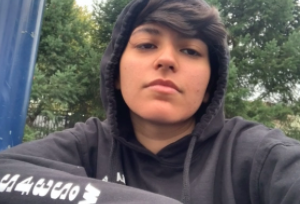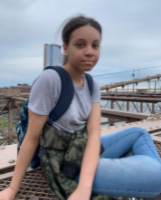Interview: Ms. Tsuchiya in Japan
January 12, 2021
Assistant Japanese Teacher Ms. Tsuchiya is affiliated with the J-Leap program. J-Leap aims to bring an immersive Japanese experience to American students interested in learning the language and culture. Typically, teachers from Japan are sent to American classrooms for two years at a time however due to COVID-19 circumstances have changed and members have been sent back to Japan. We conducted an interview with Ms. Tsuchiya regarding her experience abroad to gain some insight on the situation.
日本に帰ることはあなたの教える能力にどのような影響を与えたのですか。
1.How has going back to Japan affected your ability to teach?
教える能力は新しいチャレンジが必要ですね。簡単なインストラクションで生徒が自分で学習できるアサイメント作りについて、考えるようになりました。時差があるので、全部のクラスに出ることができません。生徒に会えないのが残念ですね。 生徒の能力も把握しにくいです。
Teaching skills require new challenges. I thought about creating assignments that students could learn on their own with simple instructions. I can’t attend all classes because of the time difference.It’s a shame that I can’t see my students. It is also difficult to understand the students’ abilities.
COVID-19はJ-LEAPプログラム全体にどのような影響を与えていますか。
How has the pandemic affected the j-leap program?
例年のJ-LEAPとは違いますね。研修やカンファレンスに参加ができなくなりました。でもオンライン授業などについて学ぶことができたので、 COVID-19 はよい面も悪い面もあると思います。
It’s different from the usual J-LEAP. I can no longer take part in training or conferences. But I think COVID-19 has both good and bad sides since I could learn about online classes and things of that nature.
あなたはこれが番組側の正しい判断だったと思いますか。
3. Do you think that this was the right decision on the program’s part?
正しい判断かはわかりません。
I do not know if it was the right decision or not.
日本はアメリカと比べてどのようにパンデミックに対処していますか。彼らはそれをよりうまく扱っていると思いますか。
4.How is Japan dealing with the pandemic as opposed to the U.S? And do you think they are doing a better job at handling it?
うまく扱っていないと思います。アメリカのほうが、 COVID-19 に対しての危機感が高く、行動に配慮していると思います.みんなマスクはしていますが、ソーシャルディスタンスはあまりしません。1月8日から東京都などで[緊急事態宣言]が出されて、夜に外出をしないように要請され ました。でも、人々は屋内レストランで食事もするし、電車にはたくさんの人が乗っています。心配です。参考までにビデオを添付しますね.
I don’t think they are handling it well. I think the United States has a higher sense of crisis around COVID-19 and is taking more action. Everyone wears masks, but they don’t social distance. From January 8th, a “state of emergency” was issued in Tokyo and elsewhere, they asked us not to go out at night. However, people are now eating indoors and there are many people on the train. I’m worried about that. I made a video for reference.
アメリカか日本の知り合いでCOVID-19にかかった人はいますか。もしそうなら、そこから何か学んだことはありますか、または何らかの影響を受けたことはありますか。
5.Has anyone you know either in the US or japan caught covid? If so, have you learned anything from it or has it affected you in any way?
アメリカの知り合いでは数人います。日本の知り合いではいません。日本では COVID-19 のテストを受けている人がまだ少ないです。アメリカの状況を友達や家族に話しました。このままだと東京も3月のニューヨーク、ニュージャージーのように危なくなると伝えています。個人的に身近な人から COVID-19 について聞くことは、ニュースで政治家が注意喚起をするより、意識の変化に影響を及ぼすと感じます。
I have a few acquaintances in America who have caught it, but no one in Japan (that I know) has. However, in Japan, few people are regularly getting tested. I told my friends and family in Japan about the situation in America. If things continue like this, Tokyo will be in danger like New York and New Jersey was in March. I feel that hearing about COVID-19 from people close to you is more likely to change your perspective rather than just listening to the news.
あなたはすぐにアメリカに帰るつもりですか。
6.Do you plan on returning to the United States soon?
帰りたいです。でもいつになるかはわかりません。
I want to go back, but I’m not sure when that will be.
KHS 教授陣との関係にどのような影響を与えましたか。
7. How has this affected your relationship with KHS faculty?
オンラインでのミーティングをするので、個人的に話したり、交流する機会は減りました。でもco-workerであるデイビス先生とは普段通りよく連絡をとっているので、問題はありません。
Meeting online reduces opportunities for personal conversation and interaction. But I keep in touch with Mr. Davis (Japanese Teacher), who is my co-worker, so there is no problem.
✰もし可能であれば、アメリカと比較して今の日本の生活を示すVLOGを作ってもらえますか。
Could you make a vlog that compares current daily life in japan to life in the United States?
(Video on The Kearnian’s Youtube channel) Watch here.

